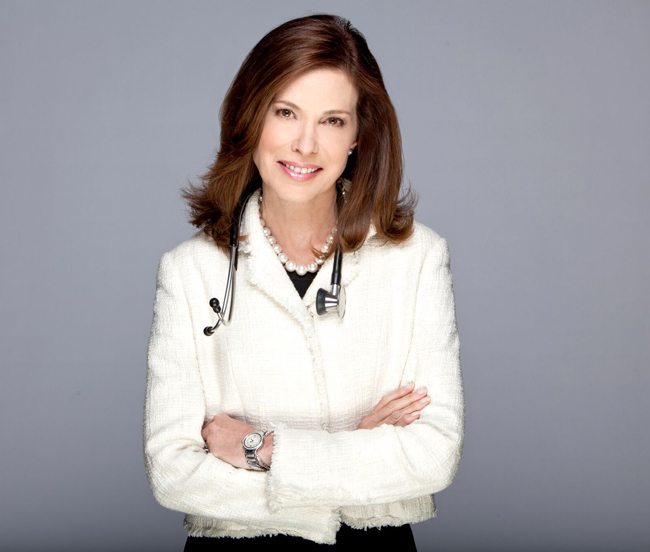
Dr. Marla Shapiro, MDCM’79, is a Canadian medical doctor, best known as a health journalist for CTV News Channel. Dr. Shapiro is the 2015 recipient of the Medicine Alumni Global Community Service Award, presented to an MDCM alumnus or alumna who has made outstanding contributions to the betterment of our local or global communities.
She is also one of the keynote speakers at this year’s Trottier Public Science Symposium (Oct. 23 – 24). In advance of her Oct. 23 lecture, “Work life balance…Mind over body,” Dr. Shapiro spoke to the McGill Reporter about the state of medical education in Canada, alternative medicine practitioners vs physicians, and her own battle with breast cancer.
“Laughter is the best medicine” is a popular quote. What is your take on it?
I am smiling as I answer this question. It is clear that each individual’s personality and outlook can determine health outcome. We have seen many studies that have demonstrated personal religious beliefs, optimistic outlooks and so on all have an interplay on outcome. It isn’t an all or nothing answer. Essentially, my personal belief is that we have to take time to consider if our actions are reactive or proactive. Taking the time to find the humour is so important in so many situations.
When I was diagnosed with breast cancer, one of my most difficult moments was when my then 9-year-old son came home to find me bald. I was wearing a baseball cap he had given me and as I opened the door as he came home after school, I told him I was now bald. Without looking at me, he said “don’t take off your cap, you’re scaring me.”
I remember being so overwhelmed with grief and anxiety that I retreated to my bedroom and cried for hours.
Around 11 that night my husband encouraged me to come to bed, my body still wracked with sobs. Most nights I slept with a little snug cap as I lost so much heat through my bald head. But that night I just crawled into bed enveloped by my fears and sadness. My husband reached over and gently touched me, and I waited for some words of solace. Quietly he said “Mar, put on your hat – the glare form the alarm clock off your head is keeping me up,” and I remember exploding into laughter. I had to laugh, I was done crying. And in that moment, it was great medicine, the ability to laugh and feel partly normal. So, along with my chemotherapy and countless surgeries, it was among my best medicine.
What difficulties have you encountered as a physician who is also a media personality?
It is clear that my public battle with breast cancer was a double-edged sword. On the one hand, I wanted my privacy from myself and my family but on the other hand, I knew if I did not take ownership of my messaging, someone else would and it might not be accurate. But having access to the public has given me the opportunity to educate people on so many important issues and to be educated, in turn, by the Canadian public.
The loss of our third child to SIDS was a loss I was not wanting to share when it happened. But a year or so later I was able to partner with the Canadian Pediatric Society, Health Canada and the Canadian Foundation for Sudden Infant Death to cross the country and educate on sleep position and all we have learned. I have learned as so many others have that I cannot always control my destiny but I can decide how to respond to what is in front of me.
Based on your experience, do you think there are any significant changes that should be made in the way that medical education is carried out today?
I think it is critical that our health care providers are not only the most knowledgeable practitioners but are well balanced themselves, empathetic and have a love for lifelong learning. Medicine is not just what you do – it is who you ultimately are.
Alternative practitioners such as naturopaths claim they treat the “whole person” while accusing physicians of treating the disease instead of the person. What is your opinion?
I don’t think I will take the time to even address that accusation. I think I was two when my mom taught me sticks and stones can break your bones but names will never harm me! I think we all have to learn to respect health care practitioners for what they can and cannot do. As an evidence-based physician I am treating the whole patient, including their social determinants of health and their overall wellbeing. I do not believe physicians focus on body parts but rather the entire person that houses those parts.
The 2017 Trottier Public Science Symposium, “Mind Matters: The Body-Mind Connection,” Oct. 23–24. Centre Mont Royal (1000 Sherbrooke Street West), corner Mansfield. Free admission; no reservations required; general seating. For additional information call 514-398-2852, email trottiersymposium.science@mcgill.ca or visit the Symposium website.
